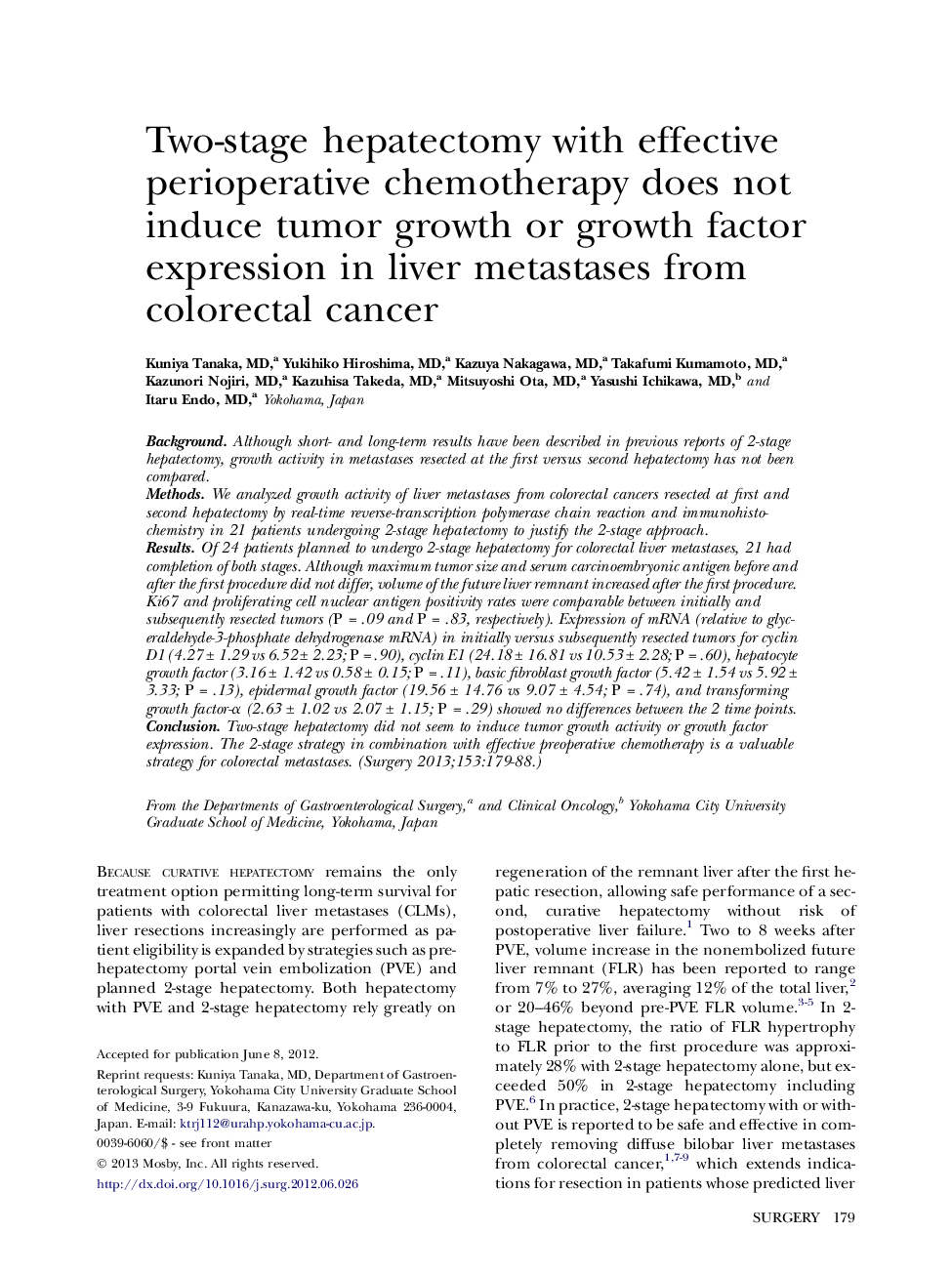| Article ID | Journal | Published Year | Pages | File Type |
|---|---|---|---|---|
| 6255743 | Surgery | 2013 | 10 Pages |
BackgroundAlthough short- and long-term results have been described in previous reports of 2-stage hepatectomy, growth activity in metastases resected at the first versus second hepatectomy has not been compared.MethodsWe analyzed growth activity of liver metastases from colorectal cancers resected at first and second hepatectomy by real-time reverse-transcription polymerase chain reaction and immunohistochemistry in 21 patients undergoing 2-stage hepatectomy to justify the 2-stage approach.ResultsOf 24 patients planned to undergo 2-stage hepatectomy for colorectal liver metastases, 21 had completion of both stages. Although maximum tumor size and serum carcinoembryonic antigen before and after the first procedure did not differ, volume of the future liver remnant increased after the first procedure. Ki67 and proliferating cell nuclear antigen positivity rates were comparable between initially and subsequently resected tumors (P = .09 and P = .83, respectively). Expression of mRNA (relative to glyceraldehyde-3-phosphate dehydrogenase mRNA) in initially versus subsequently resected tumors for cyclin D1 (4.27 ± 1.29 vs 6.52 ± 2.23; P = .90), cyclin E1 (24.18 ± 16.81 vs 10.53 ± 2.28; P = .60), hepatocyte growth factor (3.16 ± 1.42 vs 0.58 ± 0.15; P = .11), basic fibroblast growth factor (5.42 ± 1.54 vs 5.92 ± 3.33; P = .13), epidermal growth factor (19.56 ± 14.76 vs 9.07 ± 4.54; P = .74), and transforming growth factor-α (2.63 ± 1.02 vs 2.07 ± 1.15; P = .29) showed no differences between the 2 time points.ConclusionTwo-stage hepatectomy did not seem to induce tumor growth activity or growth factor expression. The 2-stage strategy in combination with effective preoperative chemotherapy is a valuable strategy for colorectal metastases.
